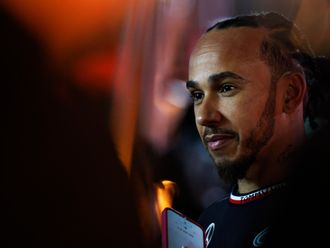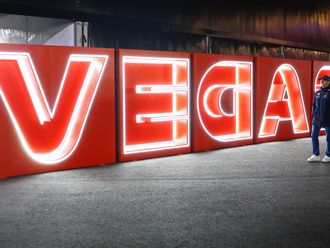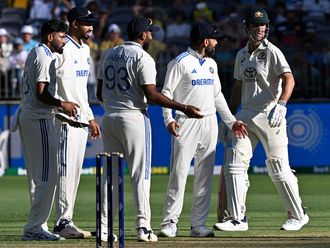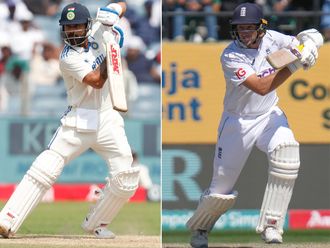Here’s an absolute stunner of a fact on money matters. Ready? Formula One is the world’s fourth largest economy.
Think on that — and this: If it were a nation, rather than a 200-metre long avenue of trucks, motorhomes, stacks of tyres and hospitality units, it would be a global economic superpower.
Can you believe it?
I came across a fascinating study by the International Monetary Fund, which made this amazing revelation.
If F1 supremo Bernie Ecclestone’s pride and joy was a static country instead of a movable feast, it would have a Gross Domestic Product figure to boost it into the top four nations in the world.
If added together, the turnover from the 200-plus who are financially committed to F1 would have a combined wealth amounting to a mind-boggling $3.787 trillion (Dh13.906 trillion).
That’s a GDP just behind China ($4.909 trillion) but ahead of Germany ($3.353 trillion), France ($2.675 trillion) and the UK ($2.184 trillion).
But F1 is much more than a lesson in brand awareness for its mega-wealthy sponsors. And the paddock is the perfect setting to do big business for the world’s richest multinational companies.
That was shown a little while ago when Williams introduced their partner, Philips, to McLaren’s bedmate, Hilton Hotels, and the result was a deal worth $124 million between the two companies.
In a single season, F1, with its global exposure, attracted 26 new mega-spenders. And it goes on and on, with every reason to believe the GDP will rise to even greater heights if it is handled right.
“F1 is clearly one of the most powerful marketing tools in the world,” says McLaren head honcho Martin Whitmarsh. ”It offers visibility on a global scale. Its worldwide TV exposure is worth around $4.8 billion, and that makes it good value.”
But Whitmarsh offers a warning and urges caution. The F1 money-go-round that keeps ringmaster Ecclestone’s grand prix circus in full swing could be in danger of grinding to a costly slowdown if carelessness creeps in.
That’s the view of Whitmarsh, who warns the future must be safeguarded with: “There is no silver bullet. We have to be more diligent in how we pull things together, recognise the implications and work harder at cost saving in F1.
“We need to make sure our sport stays healthy, with 10 or 11 teams that can survive and have sustainable business models. Any team not making a profit is spending too much money and that is a funadamental business error.
“We can do a better job if we all work together, rather than lobbing bricks at each other. That’s what we sometimes end up doing and it’s a shame.”
Wise words.
The writer is a motorsport expert based in the UK.












